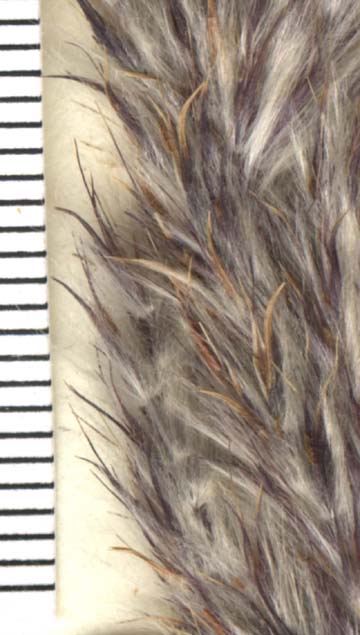Saccharum
|
Family: Poaceae |
Plants perennial; cespitose, often with a knotty crown, sometimes rhizomatous, rhizomes usually short but elongate in some species, rarely stoloniferous. Culms 0.8-6 m, erect. Leaves cauline, not aromatic; sheaths usually glabrous, sometimes ciliate at the throats; ligules membranous, ciliate; blades flat, lax, smooth, usually glabrous. Inflorescences terminal, large, often plumose, fully exserted panicles with evident rachises and numerous, ascending to appressed branches terminating in multiple rames, branches alternate, sometimes naked below; rames with numerous sessile-pedicellate spikelet pairs and a terminal triad of 1 sessile and 2 pedicellate spikelets, internodes slender, without a translucent median groove; disarticulation beneath the pedicellate spikelets and in the rames beneath the sessile spikelets, sessile spikelets falling with the adjacent internode and pedicel. Spikelet pairs homogamous and homomorphic, or almost so, not embedded in the rame axes, dorsally compressed. Sessile spikelets: calluses truncate, usually with silky hairs; glumes subequal, chartaceous to coriaceous, glabrous or villous, 2-keeled, veins not raised; lower florets sterile; lower lemmas hyaline or membranous; lower paleas absent or vestigial, entire; upper florets bisexual; upper lemmas entire or bidentate, muticous or awned; lodicules 2, truncate; anthers 2 or 3. Pedicels neither appressed nor fused to the rame axes. Pedicellate spikelets well developed, from slightly shorter than to equaling the sessile spikelets. x = 10. Name from the Latin saccharum, sugar, a reference to the sweet juice. |

